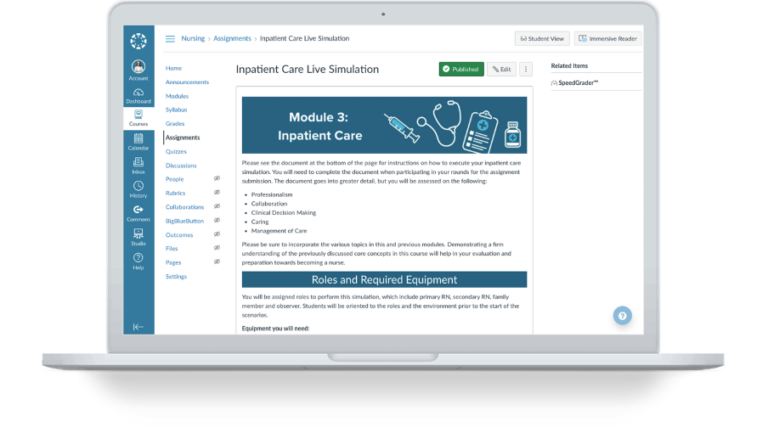Can Canvas Detect Switching Windows?
When we talk about Canvas, a popular learning management system, many students wonder if it can track their activity when switching tabs or windows. The short answer? It depends.
Other products like Respondus and Partner Webinar are available to ensure exam integrity. These tools prevent students from navigating to other tabs or accessing different browsers during tests.
What About Switching Browsers?
When students switch away from a Canvas quiz, professors might note the lack of engagement but won’t necessarily see the specific page or browser accessed. But, proctoring tools can intervene if students try to access other pages or browsers.
Proctoring and Canvas
Non-proctored tests: In non-proctored exams, Canvas doesn’t inherently monitor tab-switching.
Proctored tests: In proctored exams, Blackboard or Canvas can detect the switching of tabs through the use of a proctoring software known as Respondus monitor. Switching tabs might result in the software flagging the user and redirecting them back to the test page.
Given these implications, it’s recommended to avoid switching tabs during a Canvas exam unless you’re sure it’s not being monitored.
What Canvas Logs and Tracks
Canvas can log events related to user activity. For instance, it can track if a user is actively engaged with content or if they’ve navigated away. Some of the insights Canvas provides include:
- Visited websites and tabs
- Search queries of students
- Engagement and interaction metrics
However, without proctoring software, Canvas generally doesn’t detect or block tab or window switching in a regular browser session.
Insights Available to Instructors
Most of these conversations involve files and message boards. On the website, teachers can see how frequently students visit and how many pages they have viewed.
They also get to know how much time the student spent on each page overall. The professor can also see if the student has downloaded any files from the website. The main objective of all of these is to give the professor the ability to keep an eye on the students’ participation in tests and assignments.
Simultaneously, professors are able to discern when students end their quiz sessions on the website and may have even visited a different page, which they choose not to display. Products that allow professors to view other websites have emerged as a result of their inability to do so.
These include the Repondus and the Partner Webinar, which during tests or examinations, prevent students from navigating to other tabs or accessing other browsers.
Broader Context: Online Exam Integrity
It’s not just about tab or browser-switching. Many educational institutions employ plagiarism detection software to ensure content originality. For example, Blackboard has tools to detect copied content, especially useful for essay exams.
Conclusion
While Canvas, on its own, might not be a Big Brother monitoring every action, when paired with proctoring software, it can be quite vigilant. For students, it’s always best to stay focused during an exam and avoid unnecessary navigations. Not only does this ensure integrity, but it also minimizes the risk of unwanted technical interruptions or flags. After learning about Canvas’s window detection, see if it can also detect screenshots
Frequently Asked Questions
1. Can Canvas track my browsing history?
No, Canvas on its own doesn’t track your entire browsing history. However, it can log specific activities related to the platform, such as which pages or files you’ve accessed within Canvas. Remember, if proctoring software is in use, your browsing might be more restricted during exams.
2. If I open a new tab during a Canvas quiz, will my instructor know?
Without proctoring software, instructors might see that there’s no activity on the Canvas site but won’t directly see that you’ve opened a new tab. However, if the quiz is being proctored using software like Respondus Monitor, switching tabs can be flagged as suspicious activity.
3. Is it safe to use multiple browsers when accessing Canvas?
While Canvas doesn’t inherently block the use of multiple browsers, during proctored exams, it’s recommended to stick to one browser and avoid switching. Proctoring tools can detect and restrict such activities to maintain exam integrity.




